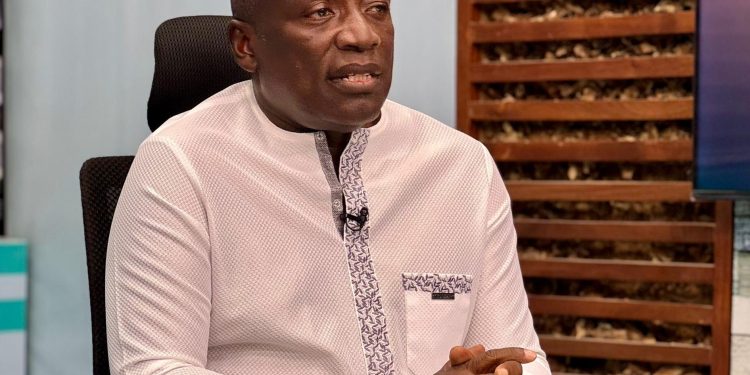A former General Secretary of Ghana’s New Patriotic Party (NPP), Kwabena Agyapong, has criticised the increasing use of personal social media accounts by government officials to announce or comment on matters of state, warning that the trend undermines public trust and violates ethical standards in public service.
Mr Agyapong’s comments come in response to a post made by the Deputy Attorney General, Justice Srem-Sai, on his personal X account (formerly Twitter), in which he outlined the reasons behind the arrest of NPP Ashanti Regional Chairman, Bernard Antwi Boasiako, popularly known as Chairman Wontumi, by the Economic and Organised Crime Office (EOCO).
Speaking on the ‘Citi Breakfast Show’ on Tuesday morning, Mr Agyapong described the move as “completely unethical”, arguing that it is inappropriate for officials to use their personal platforms for official announcements.
“EOCO is an intelligence-gathering body. For the Deputy Attorney General to take to his personal handle to explain what Wontumi was being investigated for is simply wrong,” he said. “That handle is not official. This practice blurs the lines between personal and institutional communication and can lead to confusion, misinformation, and a loss of credibility.”
Mr Agyapong said such actions breach established codes of conduct and called for all official updates to be released solely through institutional channels.
“It is very wrong for state officials to promote their personal presence online using sensitive government matters. If the Attorney General’s Office has something to say, let them use their official handle,” he added.
This is not the first time such concerns have been raised. Last week, the Minority in Parliament expressed outrage after Ghana’s Minister for Foreign Affairs announced the closure of the country’s embassy in Washington, D.C., via a personal Facebook and X post, without notifying Parliament beforehand.
The Ranking Member on the Foreign Affairs Committee, Samuel A. Jinapor, said the move was a breach of diplomatic norms.
“We were shocked to learn of the embassy closure through social media rather than from a formal briefing. It undermines the principle of quiet diplomacy that Ghana has traditionally upheld,” Mr Jinapor stated.
Calls are now growing for clearer guidelines on how public officials communicate state matters, particularly in the age of instant digital communication. For Mr Agyapong and others, the message is clear: official business must stay official.
















